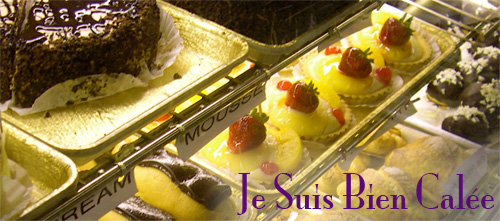Philosophy of Science
Since coming to Virginia for my internship at the Thomas Jefferson National Accelerator, I've started (re)reading Mano Singham's book The Quest For Truth: Scientific Progress and Religious Beliefs. I read portions of the book for the SAGES class I took with Mano last fall, which explored the nature of scientific revolutions. Now that I have time, I want to take a closer look at the book and reexamine some of the ideas that so plagued me during the course.
If you talked to me much at all during the time I took Mano's class, you know that exploring ideas in the philosophy of science has both scared and fascinated me. Before the class, I had never really asked the question "What is science?" It seemed too simple and basic to ever merit my attention. But now, upon asking me this question, you will get at least an hour long rambling rant that would conclude with an overall "I don't know." Of course, one could say that almost any subject or idea becomes unclear when you question its fundamental essence.
But, what I find so perplexing and captivating are the consequences of these definitions of science. When you define science, ideas about how it progresses and where this "progress" is heading follow. Largely, philosophers of science have focused on explaining how science makes advances (or even if it advances at all). And as an aspiring scientist, I find so many of their ideas frightening and confusing. These feelings largely result from personal uncertainties about my beliefs. I have always struggled with the idea of absolute truth--whether it exists, and whether or not we are capable of perceive such a truth if it does exist. This is a rather in depth topic, to which I will probably devote multiple future posts.
After finishing the first part of Singham's book, I have been reminded of all of my frustrations and questions that philosophical explorations of science raised. I find myself both discontented with the different models of scientific progression (I will probably attempt to explain why later), and pondering the consequences of the different systems. Ultimately, I've found that everything boils down to the debate between relative and absolute truths. I seem stuck in constant circles.
I also wonder how I should proceed in trying to sort out the confusion. Many of the philosophers I have read, such as Karl Popper, have been plagued with biases. They seem to set in an opinion of science and absolute truth, and then create a system of scientific progress that gives their desired result, ignoring any sorts of problems the philosophy may have. I find this approach flawed, and feel one should approach a question without a predetermined opinion of the outcome. But, I also find it extremely difficult to compare different philosophies of science if I cannot determine which is closer to my own beliefs. You cannot compare two things without criteria!
I can tell that reading this book is opening up a summer full of pondering. Ahh--philosophy inspired confusion.
If you talked to me much at all during the time I took Mano's class, you know that exploring ideas in the philosophy of science has both scared and fascinated me. Before the class, I had never really asked the question "What is science?" It seemed too simple and basic to ever merit my attention. But now, upon asking me this question, you will get at least an hour long rambling rant that would conclude with an overall "I don't know." Of course, one could say that almost any subject or idea becomes unclear when you question its fundamental essence.
But, what I find so perplexing and captivating are the consequences of these definitions of science. When you define science, ideas about how it progresses and where this "progress" is heading follow. Largely, philosophers of science have focused on explaining how science makes advances (or even if it advances at all). And as an aspiring scientist, I find so many of their ideas frightening and confusing. These feelings largely result from personal uncertainties about my beliefs. I have always struggled with the idea of absolute truth--whether it exists, and whether or not we are capable of perceive such a truth if it does exist. This is a rather in depth topic, to which I will probably devote multiple future posts.
After finishing the first part of Singham's book, I have been reminded of all of my frustrations and questions that philosophical explorations of science raised. I find myself both discontented with the different models of scientific progression (I will probably attempt to explain why later), and pondering the consequences of the different systems. Ultimately, I've found that everything boils down to the debate between relative and absolute truths. I seem stuck in constant circles.
I also wonder how I should proceed in trying to sort out the confusion. Many of the philosophers I have read, such as Karl Popper, have been plagued with biases. They seem to set in an opinion of science and absolute truth, and then create a system of scientific progress that gives their desired result, ignoring any sorts of problems the philosophy may have. I find this approach flawed, and feel one should approach a question without a predetermined opinion of the outcome. But, I also find it extremely difficult to compare different philosophies of science if I cannot determine which is closer to my own beliefs. You cannot compare two things without criteria!
I can tell that reading this book is opening up a summer full of pondering. Ahh--philosophy inspired confusion.



0 Comments:
Post a Comment
<< Home